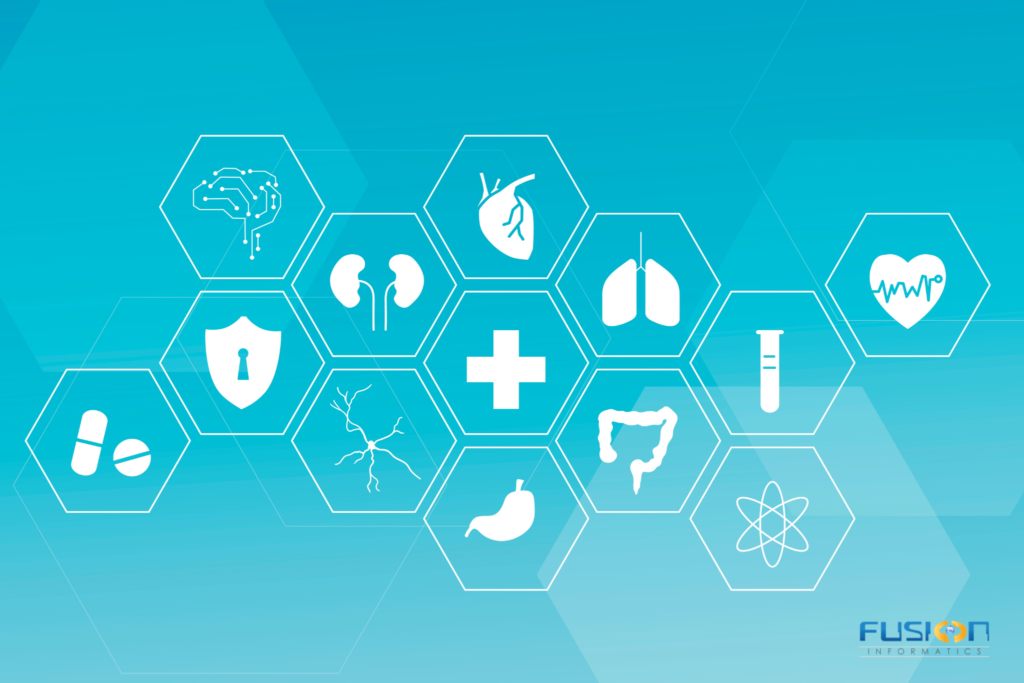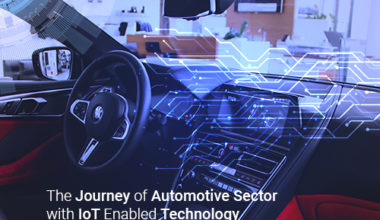
IoMT in healthcare and its devices are changing medical and healthcare dramatically, and the pace of change shows no sign of slowing down and hence we can sense the future of medical and healthcare sectors. According to the recent report, around 80% of all healthcare sectors planned to implement IoMT related services and solutions by the end of 2020.
New trends, such as IoT Development Services, IoT solutions are developing in the world of healthcare. IoMT consists of smart devices such as wearable devices and medical monitors, primarily designed for use in healthcare on the body or in community, clinics or hospital settings and many other services.
So what is this Internet of Medical Things (IoMT)?
IoMT Internet of Medical Things or IoT Healthcare consists of a network of interconnected medical devices and other devices capable of having a machine-to-machine conversation over a network to create a smart device connection. The IoMT, also known as healthcare IoT , essentially expands the internet into the medical field.
Computing devices embedded in medical devices allow them to send and receive data over a shared network, such as wi-fi. Such systems are fitted with real time sensors to monitor and pass on critical healthcare data, improving healthcare efficiency and resulting in improved patient outcomes.
List of Devices That Connected To IoMT
- Clinical monitors
- Hospital devices
- Smart pills
- Fitness wearables
- Clinical grade wearables
- Remote patient monitoring devices
- Point of care devices and kiosks

Advantages or Benefits of Internet of Medical Things (IoMT)
In almost every sector, be it automotive, logistics, or retail, IoT is booming, with every field having its own advantages. Nevertheless, it plays an important role in the medical sector, which offers many advantages. Have a look at how IoT has benefitted for medical domain.
- Health Alerts
The development of IoT apps aims to provide patients with better health solutions. Patients will receive ideal healthcare warnings with the introduction of IoT. The IoT devices will deliver critical health warnings with the help of physicians. This feature allows patients to access the most appropriate health warnings.
Due to this requirement there is no doubt that the need for top IoT healthcare app developers in the market has dramatically increased.
- Chronic Disease Management
The prevention of chronic diseases has considered as one of the advantages of IoMT. Patients with chronic illnesses are now being tested remotely.
IoMT opens remote surveillance doors for patient suffering from chronic diseases. It helps physicians to remotely monitor their patients so it prevents patients to visit clinic repeatedly.
- Real-Time Data Care System
Internet of Things solutions in the field of medial enables doctors to efficiently manage patient information in real time.
There are already several apps that supply patient data in real time. Apple Watch, Samsung Gear can be considered as an example. Such wearable’s submit patients ‘ health data in real time to health experts.
Then the health managers check the data and provide patients with better health solutions. It allows medical experts to provide the best health options to the patients with the real-time data management system.
How Wearable Healthcare Devices Deliver the Next Level Benefits
Wearable gadgets associated with the Internet of Things are disrupting healthcare practice at a healthy sound rate, making another new era of digital medicine.
- Better Diagnoses, Better Outcomes
Helping medical doctors to quickly, accurately diagnose and personalize their treating plans can be the greatest possibilities for IoMT in health care. These capabilities can improve results, reduce costs and ultimately give more people worldwide more access to high quality care.
Healthcare IoMT technology can integrate and analyze different types of diagnostically relevant data and transform it into support systems for clinical decision-making. Providers using these systems will gain an overview of the health of each patient and the tools to recommend treatment faster and more accurately.
- Virtual Home Assistants
Quite often, patients are left to operate by themselves, or with their families or friends. The daily support for specific routine tasks is necessary for patients. Virtual assistants or robots that help patients to interact on touch screens so that they are connected digitally to their families and friends.
- Blood Clot Test
The IoMT also facilitates the monitoring of blood clot level by patients. Bluetooth networking is used for these devices. In their smartphones, patients will get details in their blood clot levels. It therefore reduces the risk of stroke and blood.
- Assist Physically Challenged People
To people with physical disabilities, IoMT technology can be very beneficial. This is the IoMT’s most critical quality.
Today, we have several IoT apps for people with different abilities. For example, wheelchairs, hearing systems, eye glasses, etc which are IoT-enabled and these devices are like a helping hand for such patients. Besides this, many IoT apps can be found in the stores. Such frameworks are designed to help such people.
- Drug Management
IoMT also supports the treatment of medicines and drugs. Patients receive health data using IoT devices. This data enables them to properly manage drugs and medicines. IoT also offers patient-friendly analytical data.
- Lowers the Healthcare Cost
IoT results in a reduction in the cost of clinical applications in the medical field. The IoT system in the medical field allows doctors to remotely observe patients.
Because of this virtual technology, physicians do not physically encounter patients. As a result, the cost of the healthcare has reduced. In addition, patients are no longer needed to visit clinics for routine checkups.
Also Read: How Mobile Apps Ruling the Health Care Industry
Challenges of IoMT Implementation
- High Infrastructure Costs
While the long-term goal of IoMT is to reduce overall healthcare costs, the costs associated with the development of the Healthcare IT system are immense. The hardware costs, the IoMT IT infrastructure, cloud computing and the creation of a consumer-friendly application lead to a high initial investment. While investment returns are conclusive, high infrastructure costs are an obstacle to IoMT.
- Data Security Threats
Health information is highly prone to cyber-attack violations and is constantly vulnerable. A report shows that the medical sector is 350% more security-related than any other sector and that hacking of data is 200% more likely to occur.
Increasing the risk of exposure significantly increases when applying the IoMT data to an existing pool of medical information. As more machines interconnect each other and other networks, the possibility of data breaches increases.
- Regulatory Challenges
Medical devices of clinical grade require FDA approval and clearance to bring them on the market. For regulatory authorities and legislators, IoMT devices are also presenting new challenges. Regulations such as HIPAA already regulate Patient Health Information Collection and Storage but have to create new regulations covering medical devices and regulating them.
- Standardization Issues
With a variety of suppliers and manufacturers of medical devices, all of whom seek to achieve scalability and reduce the time on the market for their product, standardization of IoMT products is becoming a matter of concern. According to the 2017 report, FDA recommendations only protect 52% of medical device manufacturers and 43% of healthcare organizations. Lack of standardization affects medical device interoperability that reduces IoMT overall efficiency.
- Interoperability of Data
Data collected from various IoMT devices is of no use if it cannot be collected and computed to give meaningful and clinically relevant results. To make full use of the potential benefits of IoMT all IoMT software must be interoperable and facilitate the transfer of data to all people using the system, including suppliers and payers.
What is the Future?
Roughly, 20% of global healthcare organizations have already implemented IoMT technology and an additional 80% are expected to do so by the end of 2020. IoMT provides consumers with technologically connected products and provides essential information to patients and physicians anytime or anywhere. This offers a much-needed peace of mind for patients and caretakers.
Looking to create an app for healthcare? Then it is the right time to Hire Top Healthcare App Development Company like Fusion Informatics. At Fusion Informatics, we have more than 10 years of experienced IoT and app developer, who can develop and design your healthcare software and applications as per your medical business goals.


